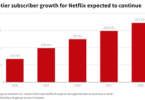TOKYO/SINGAPORE (Reuters): Oil prices continued to pull back on Thursday, dropping more than 2% as investors recalibrated assessments of recession risks and fuel demand amid interest rate hikes in major economies.
U.S. West Texas Intermediate (WTI) crude futures had skidded $2.6, or 2.7%, to $103.46 a barrel by 0330 GMT. Brent crude futures slid $2.5, or 2.3%, to $109.22 a barrel.
Both benchmarks tumbled by as much as $3 a barrel in the early morning of Asian trading, after plunging around 3% in the previous session. They are at their lowest levels since mid-May.
Investors are continuing to assess how worried they need to be about central banks potentially pushing the world economy into recession as they attempt to curb inflation with interest rate increases.
“Oil markets remained under pressure as investors were concerned that U.S. rate hikes would stall an economic recovery and dampen fuel demand,” said Kazuhiko Saito, chief analyst at Fujitomi Securities Co Ltd.
“The U.S. and European hedge funds have been selling off their positions ahead of the end of the second quarter, which is also cooling investor sentiment,” he said, predicting WTI could fall below $100 a barrel before the July 4 holiday in the United States.
U.S. Federal Reserve chief Jerome Powell said on Wednesday the central bank was not trying to engineer a recession to stop inflation but was fully committed to bringing prices under control even if doing so risked an economic downturn.
Analysts from Haitong Futures wrote: “With more data proving that Russian crude supply is less affected by sanctions than most people have previously estimated, the supply side may see a larger-than-expected increase in the near term.”
President Vladimir Putin said on Wednesday that Russia was in the process of rerouting its trade and oil exports towards countries from the BRICS group of emerging economies in the wake of Western sanctions over Ukraine.
China’s crude oil imports from Russia in May were up 55% from a year earlier and at a record level.
U.S. President Joe Biden, meanwhile, called on Congress to pass a three-month suspension of the federal gasoline tax to help combat record pump prices and provide temporary relief for American families this summer.
“The news temporarily boosted the oil product prices, but it was later viewed that even if the gasoline tax was suspended, retail prices would remain high, making it difficult to stimulate demand,” Fujitomi’s Saito said.
The U.S. Energy Information Administration said its weekly oil data, which was scheduled for release on Thursday, will be delayed due to systems issues until at least next week.






